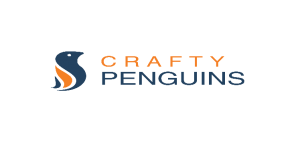San Diego Chapter - DevOps Tutorial
This event is free to all.
This tutorial is VIRTUAL/ONLINE only.
Please RSVP Here
Date: Saturday, June 20th 2020, 9am – 2:30pm (Pacific Time)
Please Note: This tutorial is purely VIRTUAL/ONLINE.
Cost: Free.
Online Webcast Link:We will be using GoToMeeting software, and it will not require a download/install if using the Chrome browser.
Online Webcast Link: https://global.gotomeeting.com/join/423747781
You can also dial in using your phone.
United States: +1 (408) 650-3123
Access Code: 423-747-781
NOTE – A certificate of attendance of this tutorial can be obtained by emailing us at [email protected]. This letter may be accepted as a Certified Educational Unit (CEU); please inquire with your organization.
- In exchange for presenting, attendee names and emails will be provided to the presenters. If you do not want your name/email provided to the presenters email us at [email protected] and we will ensure that your name/email info is not provided.
Thank you.
Synopsis:
What is DevOps, and why should Systems Engineers learn about it?
Development Operations (DevOps) is a set of practices which combines software development and information-technology operations to shorten the systems development life cycle and provide continuous delivery. DevOps stresses continuous highly-automated testing; the code is tested for (among other things) errors (bugs), formatting, functionality, and often times security vulnerabilities (this is called SecDevOps, or DevSecOps). The code may also be automatically packaged and delivered/deployed.
Please join us for training and demonstrations in DevOps products, and to view actual DevOps ‘pipelines’ in action!
DevOps practices accelerate the pace of digital transformation, and overcome challenges such as maintenance and compliance. Traditional approaches risk slowing software delivery, exacerbating audit pain, and leaving organizations with an incomplete view of compliance posture.
DevOps is also about removing the barriers between traditionally siloed teams, development and operations. Under a DevOps model, development and operations teams work together across the entire software application life cycle, from development and test through deployment to operations. To improve collaboration and productivity DevOps automates infrastructure, workflow, and continuously measuring application performance. Developers deliver code is small chunks (new features, bug fix, etc.) that are integrated, tested, monitored and deployed. DevOps has a three pronged approach:
- Plan & write code: the Dev team plan and write code using Code Configuration Management
- Build & Test: while writing the code the developer can build and test code
- Release & Deploy: automate the process of delivering that code to customer.
Tutorial Agenda:
-
- OpsHub 9:00am – 11:00pm (Pacific Time) (1.5 hour presentation, approx. 30 min for Q&A)
- Break 11:00-11:30 (Lunchtime plus ability to network via Chat)
- Puppet 11:30am – 1:00pm (Pacific Time) (1.0 hour presentation, approx. 30 min for Q&A)
- Crafty Penguins 1:00am – 2:30pm (Pacific Time) (1.0 hour presentation, approx. 30 min for Q&A)

DevOps Integration
Modern product development needs alignment between the cross-functional teams in an enterprise. The primary driving forces behind this advancement is the unprecedented complexity of the products that are to be developed and increased customer expectations. OpsHub Integration Manager (OIM) provides to enterprise integration platform to meet the needs of modern systems engineering approach. OIM enables enhanced collaboration and productivity across the product delivery chain and reduces the risks of delayed deliveries and helps deliver better quality product to the customer.

Speaker Bio: Vibhuti Bhushan is the VP of Products and Marketing at OpsHub. He comes with 16 years of rich experience in Engineering, Product Management and Marketing. Prior to OpsHub, he worked with EMC, NetApp, and SAP in various technical and leadership roles.

DevOps Environment:
Puppet is designed to manage the configuration of Unix-like and Microsoft Windows systems declaratively. The user describes system resources and their state, either using Puppet’s declarative language or a Ruby DSL (domain-specific language). This information is stored in files called “Puppet manifests”.
Speaker bio will be provided at a later date.

DevOps Engineering
Crafty Penguins has been instrumental in driving continuous improvements in their clients’ IT infrastructure and thrive on creating solutions that can grow with their client’s needs and complex structures. They love playing in the sandbox of the Linux and Open Source world. From coding to databases to hardware to advanced networking, we get the variety of work we crave. The industry, technologies, best practices, and hot topics are constantly evolving which keeps us on our toes and forces us to embrace challenges, be open to change, and continuously innovate.

Speaker Bio: Richard Clark, Team Lead and VP Engineering is responsible for pragmatic architecting of systems for clients and internally, and to support the team as needed with assistance and guidance. Outside of those needs his focus is on client software engineering work specializing in Devops and SaaS full stack development. He has been involved with Linux since early 1994, and enjoys bringing the Linux/GNU based OS to as many companies and individuals as he can, including recent work to help setup Linux based computer labs for Students and Hospitals in Guinea, Africa.
Through the 90’s Richard was focused on IT management. Through the early 2000’s he worked as Sr. Software Engineer on various embedded software projects. In 2011 Richard joined the company as a Systems Architect specializing in Linux systems. He labels himself as Jack of all trades and Master of whatever he has been working on for the last month.
Please RSVP Here